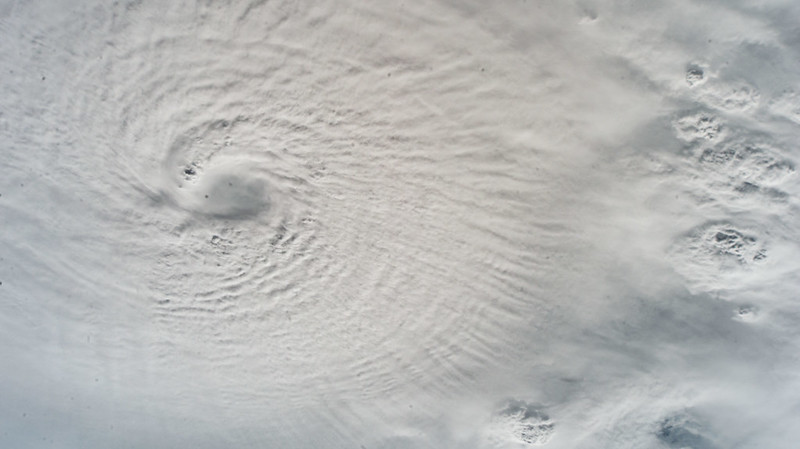Touching down on Thursday, September 26th, 2024, and continuing until the 29th, Hurricane Helene devastated the southeastern region of the United States. The Category 4 hurricane has left hundreds without their lives, thousands without their homes, and millions without power.
Hurricane Helene caused landslides and flash floods across Florida’s Gulf Coast after growing from a Category 1 into a Category 4 hurricane within a day. In The New York Times article titled “Helene’s Intensification Was ‘Aggressive.’ Here’s Why,” authors Hank Sanders and Judson Jones identify that this intensification occurred due to record warm ocean temperatures. These temperatures cause storms to develop into hurricanes at an alarming rate.
Sanders and Jones note how fast winds were also a major factor in the storm’s quick advancement in classification. Being labeled as a Category 4 hurricane out in the Gulf of Mexico is unusual and was a reason for concern among researchers.
Destroying a large part of Florida, South Carolina, Georgia, Tennessee, Virginia, Kentucky, and notably western North Carolina, the death toll remains unknown. Many are still reported as missing or unaccounted for. Helene is identified by BBC News writers Ana Faguy and Brandon Drenon as being the deadliest hurricane to have hit mainland U.S. since Hurricane Katrina back in 2005. In an AP News article by Bruce Schreiner, he reports that the current death toll of Helene is around 230 and counting.
The storm had over 140 mph winds with a 15ft storm surge. Landing at nighttime, many woke up to homes and communities destroyed. While the hurricane was later downgraded to a tropical storm, it continued to cause devastation in the Carolinas, damaging roads, houses, and lives.
Asheville, North Carolina, located in the state’s western mountains, was hit hard and is still being cleared by volunteers and workers alike. Farms in western North Carolina have similarly been destroyed, ruining crops. The AP News piece by Bruce Schreiner goes on to identify how the state has been asking for and receiving money from the Federal Emergency Management Agency (FEMA). This money goes to clean-up efforts and provides assistance for survivors of the natural disaster.
Sanders and Jones talked with Dr. McNoldy, a hurricane researcher working for the University of Miami. In their New York Times article the writer’s note McNoldy’s distress at how people evaluate weather forecasts. McNoldy how people are often misled by the hurricane’s projected cone map shown on their television and don’t accurately interpret the widespread damage that can be caused by the hurricane.
Now, not even two weeks after Helene made landfall, another hurricane is set to hit Florida on October 9. Currently labeled as a Category 5 hurricane, the storm also had a rapid growth in categorization like Helene. Hurricane Milton will hit similar locations in Florida as Helene, adding even more stress on communities previously affected and those in surrounding areas.
As volunteers work to prepare the area for the coming week, others are still working to fix damaged infrastructure and homes impacted by the last storm. Currently, Milton is not projected to curve back into Georgia or the Carolinas. However, as pointed out by Dr. McNoldy, the cone projection is not always accurate, and preparations should continue to be made by surrounding counties.
An AP News article by Mike Schreiner and Haven Daley, titled “Hurricane Milton is a Category 5. Florida Orders Evacuations and Scrambles to Clear Helene’s Debris,” focuses on Florida Governor, Ron DeSantis, calling for an evacuation of the area in heed of Milton’s approach. While scientists say that the storm will slow down, possibly to a Category 3, the area is vulnerable from the previous storm and is thus predisposed to large damages.
Ron DeSantis wants increased efforts to be placed on the state’s gulf coast, notably the Tampa Bay area. This is because objects and infrastructure damaged in the last storm can become projectiles in high wind speeds. Schreiner and Daley note that flash flooding is a large worry for residents as the high waters from Helene persist.
After the devastation from Hurricane Helene hitting the southeast not even two weeks ago, many are tired and worried about the additional destruction of Hurricane Milton. While many are reluctant to evacuate Florida, their Governor is urging them to get out while they can.
As water temperatures in the gulf increase, storms such as these are likely to reach high levels of categorization. It is hoped that Milton will downgrade before reaching land, however, it remains likely it will stay at a rating of at least Category 3 or above.




